‘Back in the day’ when he was World Team Sprint Champion and a silver medallist in the World Individual Sprint Championship we used to speak to Scottish fast man Craig Maclean on a regular basis.
Since then he’s gone on to be a successful tandem pilot on the paralympic scene and, he’s gone into coaching – as well as ‘playing in the band.’
High times VeloVeritas ‘had a word.’
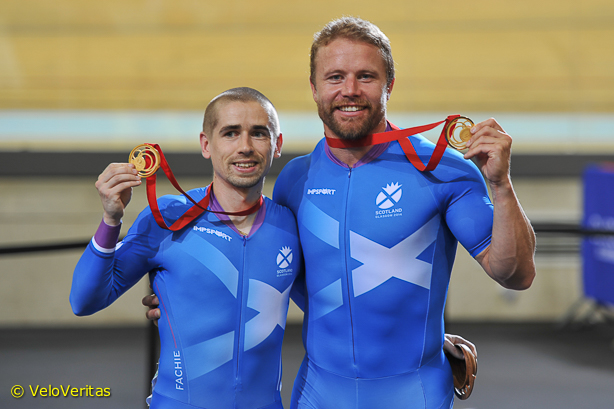
Photo©Martin Williamson
The 2014 Commonwealth Games, Glasgow, Craig – two gold medals on the tandem – that must have been pretty special in front of your home crowd?
“Glasgow was a great experience for so many reasons really.
“Competing at a Commonwealth Games on home soil on an indoor velodrome named after a friend is not something I thought would ever happen in my career time.
“Winning two gold medals obviously helps the enjoyment of the whole thing but the atmosphere was incredible in the Velodrome.
“I didn’t see myself continuing as a tandem pilot beyond London 2012 but when they announced tandems were going to be incorporated in Glasgow 2014 I didn’t need much persuasion to keep riding.
“In my eyes Glasgow was going to be my final ever race too so it was a very emotional experience and great that my family were there to watch me bow out (or so I thought!).”
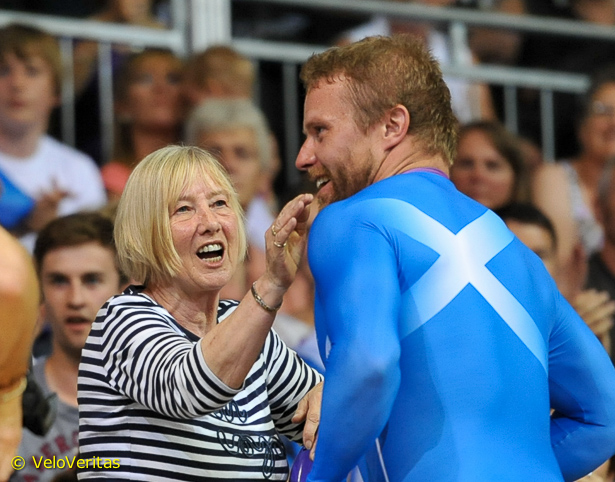
2016 Worlds, you took bronze – were you happy with that?
“Post Glasgow I was contemplating what to do next.
“British Cycling kept me on as a back-up pilot since Pete Mitchell came onto the programme as my replacement.
“At this time there was only one VI (Visually Impaired) male sprint athlete, Neil Fachie.
“Fortunately for me VI athlete James Ball (ex 100,200,400m runner) had been trying his hand a cycling due to being plagued with running injuries.
“He’d hit some impressive numbers in the lab so it was a question of transferring fitness and developing a skill set for tandem riding.
“James came onto the programme officially in January 2016 so we didn’t have long together before the Worlds in March that year so we were happy to come away with a bronze medal at that stage.”
How did the Rio Olympics go?
“Rio was a pretty frustrating time for James and I as it wasn’t a true reflection of what we were capable of.
“Due to the small number of places the team had qualified we were not selected for Rio but had to train as if we were up until the cut-off point (that was the end of June) when we were told for definite we wouldn’t be going.
“This was my opportunity to let my old body recover and take some time out.
“Fast-forward to three weeks before the Paralympics; I was on holiday with my partner and kids, sat on a beach on the South Coast of England and I received a call from our team manager asking if I’d like to ride in Rio.
“My initial reaction was to say no but I couldn’t as I’m simply there to do a job on behalf of another rider and James was understandably desperate to go.
“After the Worlds we continued to make good progress but by the time we got the Olympic call up we had missed around eight weeks of training together and three weeks before a major event isn’t the time to start intense training so we only had a handful of quality sessions before we raced.
“In the end we were only half a second off Bronze which would have been achievable had we had better prep.”
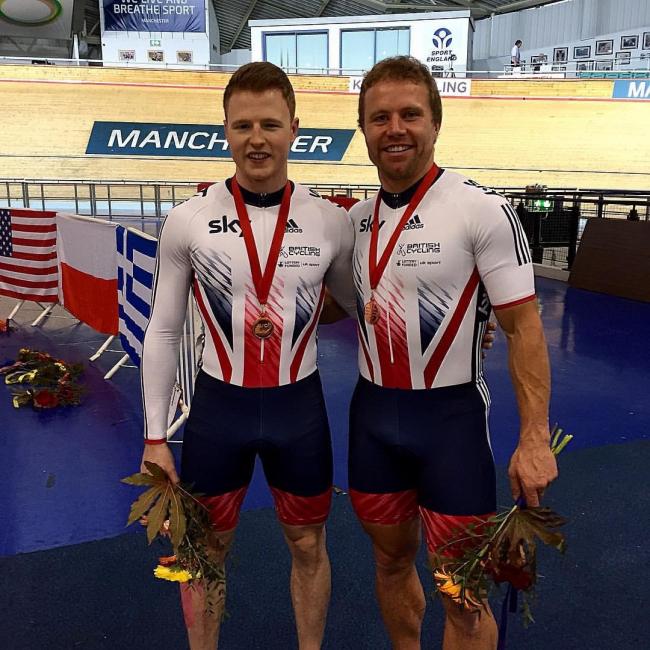
Is that you finished with competition now?
“We’re just back from the 2017 Paracycling World Champs in LA – again, a late announcement of an event which wasn’t going to be held this year but they threw it at us, with seven weeks notice this time!
“I was paired with fellow Scot Neil Fachie once again with a view to qualifying for the Commonwealth Games 2018.
“We picked up two Silver medals and hit the qualifying times for Commies in the process.
“All being well Neil and I will be still going strong at the event in Gold Coast next year.”
You were a Worlds Sprint silver medallist – do you ever miss that cut and thrust?
“When I retired from the able bodied side of the sport in 2008 I was definitely ready for it – for a rest, at least.
“My body had had enough and I simply couldn’t continue at that intensity (my illness hadn’t been diagnosed at this point).
“There were times when I missed it but I was very fortunate to have the tandem to slowly wean me off regular competition and to serve as a gentle reminder that my body couldn’t cope with the high volume of training anymore.”
Is there as much pressure in the para environment as there is in the Worlds you were used to competing in previously?
“The pressure is the same really but it tends to be focussed around one of two events a year which is physically more manageable than the continuous onslaught I’d come from on the able bodied side.
“As an athlete you always tend to engage competition mode when you compete regardless of what the event is; it’s hard to snap out of when you’ve done it for years.”
Why did you decide to go in to coaching?
“I’ve been coaching for years on and off really.
“Even if you go back to the early days (the 90’s), Chris (Hoy) says I was the closest thing to a coach he had then so I’ve always been interested in helping people get the best out of themselves.
“Over the years you develop the ability to instinctively know what a rider needs from seeing a snapshot of them riding.”
Tell us about your range of clients.
“They’ve been varied over the years, for example I was involved in the DHL sprint school which ran for four years and included kids from age 12-16.
“Some clients compete at Master level.
“One of my Elite clients recently won a Silver medal in the European Champs.
“I’ve also been working with Paracycling team mate Jon-Allen Butterworth over the last 18 months in which time he’s won a World title and Gold at the Paralympics in Rio.”
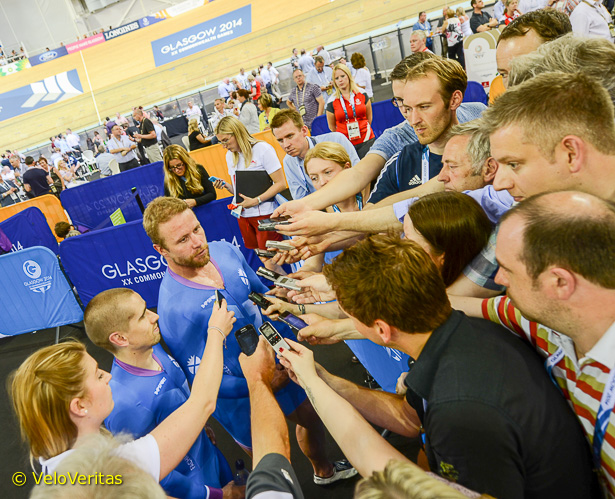
I seem to remember that you did a bit of coaching with Vicki Pendleton back in your racing days?
“I coached Victoria Pendleton post Athens Olympics for an 18 month period.
“This saw her win her first World Sprint title which made me immensely proud, she was great to work with.”
There are a lot of coaching set ups out there now – why should riders come to you?
“While I’m always keen to take on new clients I prefer to limit numbers so I can give them quality service.
“I think there’s too much ‘cut and paste’ coaching going on these days – training should be very individual and tailored.
“The other side to coaching is that you want clients that are going to do you justice in terms of how they apply themselves in training.
“I’ve had clients before that think the programme itself is the answer when in fact it’s the intensity and commitment with which it is approached that makes the difference.”
Is ‘power’ the only way to go now?
“It makes it easier to prescribe certain aspects of training but it’s definitely not critical.
“If I’m coaching a rider remotely then it’s a useful reference point but there is a lot of variability in power meters so you can’t get too hung up on it.
“If I’m coaching a track rider who has access to an indoor velodrome with few variables then reliable timing or video is all that’s required.”
And will you ever come back to Scotland to live and work?
“Possibly, I think now that we have the velodrome in Glasgow, Scottish Cycling have a prime opportunity to develop a great team.
“I’d love to be part of it in some capacity.”
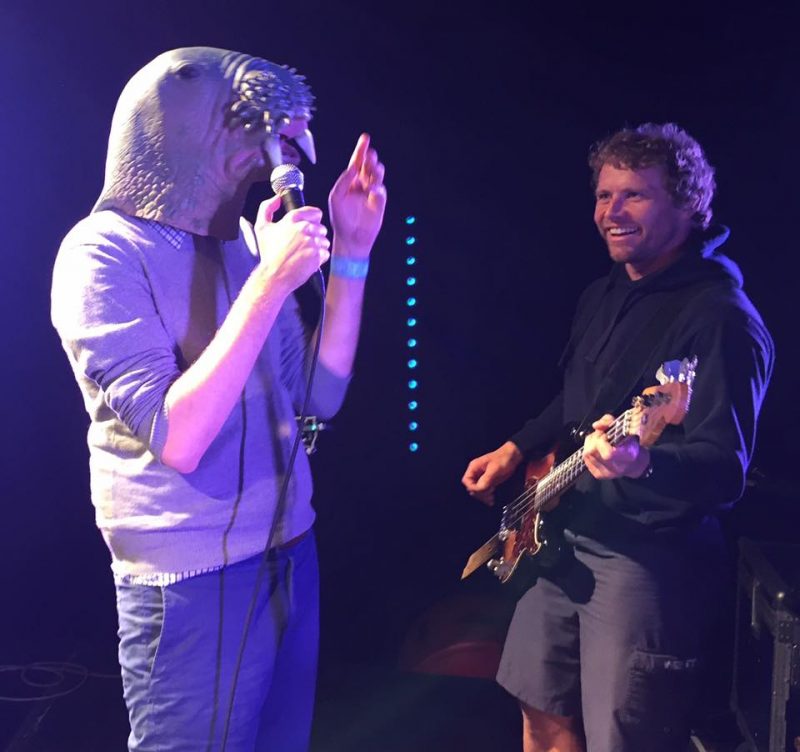
Tell us about the band you play in, please.
“They’re called The Fraudsters.
“I joined them three years ago as music has been a hobby of mine for a long time and I’d played in bands when I was younger.
“They were well established around Manchester long before I was part of them, I was lucky enough to find them when they happened to be looking for a new bass player.
“We mainly do corporate functions and weddings and generally have a bit of a laugh while we’re at it.”
What’s the motivation now – what gets you out of bed of a morning?
“It’s usually the kids that get me out of bed in morning these days!
“I still really enjoy the training process and having an event to work towards really helps focus.
“As I get older I like the challenge of manipulating my training loads to get the best out of myself with very low volume but very high quality training.
“From a coaching point of view it’s useful for me to apply some of these principles to my clients who maybe work full time or have restricted training hours.”
The inevitable ‘Shane question’ to close with – was he ‘inappropriate’ or was he just being an Aussie who’s ‘seen it all before’?
“If you know Shane the chances are you’ve fallen out with him too!
“He’s a hard taskmaster and if he thinks you’re not doing everything to get the best out of yourself then he will challenge you on it.
“He’s deeply passionate about his riders and a very intuitive coach, he’ll be sorely missed at British Cycling.”



